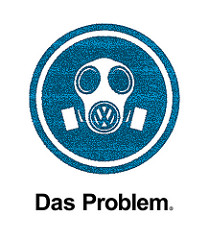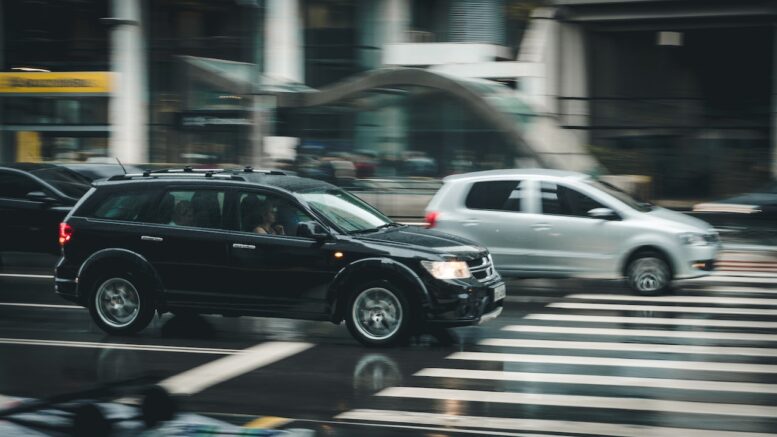Years after it colluded with German carmakers Mercedes-Benz (through its parent company Daimler) and Volkswagen, BMW has once again been fined for colluding with other carmakers to manipulate diesel vehicle emissions. This time around, the Bavaria-based manufacturer; along with Mercedes, Audi, and VW, cheated South Korean drivers using defeat devices.
South Korea’s antitrust regulators, KFTC or the Korea Fair Trade Commission issued the carmakers a total of 42.3 billion won (or roughly £26 million). Audi’s fine is at 6 billion won (£3.7 million) while Mercedes has to pay 20.7 billion won (£13 million). The KFTC fined BMW a total of 15.7 billion won (£9.6 million). VW was not fined financially since the carmaker did not post any revenue that was relevant to the collusion.
Although Mercedes-Benz said it coordinated with the KFTC, a representative also claimed that they should not have to pay the fine because the European Commission already investigated them for a similar reason – and the outcome was the same, but they were exempted from the fine because they reported the existence of the cartel.
What the carmakers allegedly did
According to the South Korean regulator, the carmakers equipped their diesel vehicles with illegal cheat software, or defeat devices, which were programmed to lessen nitrogen oxide or NOx emissions. This would allow vehicles to pass Korean environmental laws and emissions compliance.
A defeat device manipulates emissions when it senses that the vehicle is in testing. However, the emissions-compliant state holds for only the entirety of the test. Once the vehicle is out of the lab and driven on real roads, it resumes emitting considerable amounts of NOx, exceeding legal levels by at least 40 times.
According to the regulator, the carmakers agreed to use dual-mode software that automatically lowered diesel exhaust fluid that’s used to reduce NOx emissions. They colluded to limit the production of more single-mode system environmentally friendly diesel vehicles. As such, the carmakers limited the development of clean cars equipped with new technology so consumers would have lesser options.

Vehicles with single-mode Selective Catalytic Reduction (SCR) systems are capable of reducing NOx emissions compared to the dual-mode models. The commission also reported that Bosch, a popular parts supplier, initially urged the carmakers (Mercedes, VW, and BMW) to adopt the single-mode SCR but the manufacturers turned down the suggestion because they would need bigger tanks for their diesel exhaust fluid.
A couple of years ago, Daimler, VW, BMW, Porsche, and Audi were allegedly involved in a similar collusion, which also reduced innovative technology for cleaner emissions.
The collusion contributed to the Dieselgate scandal, which was exposed in September 2015.
Reviewing the Dieselgate scandal
The Volkswagen Group was the first carmaker to have been accused of using defeat devices to manipulate emissions. US authorities specifically identified VW and Audi diesel vehicles sold in the American automobile market as the ones affected. They ordered a recall of the thousands of affected vehicles and fined the carmaker for violating emissions regulations.
Aside from Volkswagen, other carmakers, such as BMW, Mercedes, Vauxhall, and Renault have also been implicated in the diesel emissions scandal. The list grows longer each year as more carmakers are discovered to have used defeat devices.
Authorities believe that the carmakers cared more about making a profit than protecting their customers from dangerous emissions. As mentioned earlier, the devices emit high levels of NOx, a gas that has long-term negative impacts on a person’s health and the environment.
Law firms are encouraging affected drivers to file a diesel claim against their carmakers. Volkswagen and Mercedes have already settled with some drivers, including those in the UK. BMW emissions claim cases are ongoing as lawyers continue to build a strong group legal action.
Why defeat devices are considered dangerous
NOx, the emissions that come from defeat device-equipped diesel vehicles are contributors to air pollution. It contains NO or nitric oxide and NO2 or nitrogen dioxide and produces ground-level ozone, a pollutant that damages vegetation. It also contributes to the formation of smog and acid rain.
Once exposed to NOx emissions, a person will spend their life coping with a variety of health impacts, including:
- Dementia
- Depression and anxiety
- Asthma
- Pulmonary oedema
- Asphyxiation
- Laryngospasm
- COPD
- Certain cancers
- Cardiovascular disease
The most devastating impact of exposure to NOx emissions is premature death. For this, the best example would be the 2013 untimely death of a nine-year-old from London who expired after numerous hospital visits and a severe asthma attack. Ella Adoo-Kissi-Debrah’s emergency room visits were primarily for respiratory-related health issues.
An inquest on her death was ordered and in December 2020, the coroner confirmed that she died because of exposure to high levels of air pollution.
To prevent incidents like this from happening, drivers affected by the emissions scandal should file a diesel claim against their carmakers.
Am I allowed to file my diesel claim?
As long as you are eligible to receive compensation, you can file a diesel claim against your carmaker. To find out the requirements for eligibility, head on to Emissions.co.uk and get all the information they offer. Once you are done, sit down and work with an emissions expert to bring your carmaker to court.
